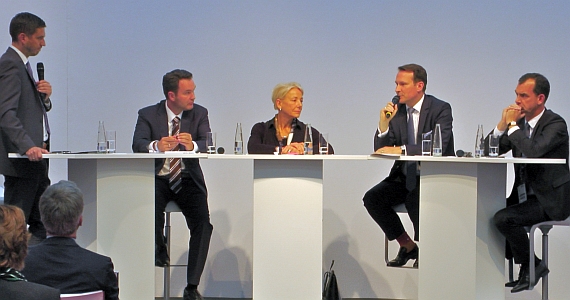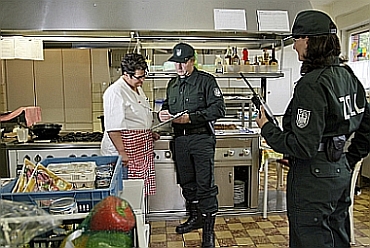News & Stories
Bonn. Just as Facebook founder Mark Zuckerberg has left Berlin, the German Federal Cartel Office is initiating a procedure against Facebook, due to abuse of market power as a result of data protection violations. The focus is on the terms and conditions of use.
Bad Homburg. On the application of the German Centre for Protection from Unfair Competition, the Regional Court of Nuremberg has issued an injunction in respect of a misleading advertisement by hotel.de.
Berlin. The German Hotel Association now wants to gradually initiate legal steps against Booking.com because the OTA is denying the hoteliers direct email contact with its guests and furthermore, is co-reading their emails.
Munich. Today, there's an individually tailored contract for every need; a contract which reflects the wishes of investors, operators and franchise partners. Yet this in no way means that all are satisfied as far as security, flexibility and profitability are concerned, in particular against the backdrop of rising distribution costs. In light of currently low interest rates, many are likely to be satisfied with whatever they can get. This was clear at the final discussion at the Hotel Conference "Hospitality Industry Dialogue" at Munich's Expo Real.
Berlin. The German registration system was modified and conveyed to the federal government in 2006 and now, the new regulation will come into force on November 1, 2015. It also entails changes for the hotel industry: For example, a faster check-in.
Rome. Italy has its own "Macron" law now. Last Tuesday, the national Chamber of Deputies voted on a special amendment to the so-called Competition Draft Law, aimed at giving hotels the freedom to fix room rates on their own website, independently from any parity rate clause online or offline. But there is a handicap.
Berlin/Offenbach. Germany's social-democratic Federal Minister for Labour and Social Affairs Andrea Nahles has created a bureaucratic monster with the German Minimum Wage Act placing disproportionate burdens on the employer. Documenting working time is burdensome and damaging for the economy - as hospi-talityInside editor Susanne Stauss shows today in her separate article. The legal basis on which this duty of documentation stands is explained today by hospitalityInside's experts for labour law, solicitor Joachim Jungbluth, partner in the law firm Jungbluth & Hermann based in Offenbach am Main, together with para-legal Maike Ehlers. Jungbluth too draws a very sober conclusion.
Berlin/Offenbach. Since August 11, 2014, one of the most-discussed pieces of legislation in the history of the Federal Republic of Germany has been in force: the German Minimum Wage Act. Under the provisions of the Act, from January 1, 2015, a minimum wage of EUR 8.50 must be paid in Germany. The Act provides clear regulation of the rights and duties of companies, respectively employers - and sanctions infringement with hefty fines. hospitalityInside's expert for labour law, solicitor Joachim Jungluth, partner at the law firm Jungbluth & Hermann based in Offenbach am Main, together with paralegal Maike Ehlers have broken the new Act down into its component parts and explain the provisions, roles and controls. Part 2 will follow next week and will focus on the legal peculiarities of the Minimum Wage Act and initial experience with it.
Rome. The Administrative Court of the Lazio region has cancelled the 500,000-euro fine imposed upon TripAdvisor LLC and TripAdvisor Italy Srl by the Italian Cartel Office last December for the publication "of deceptive information regarding the sources of reviews".
Paris/Rome/Berlin. Yesterday, in Paris: the French National Assembly definitely voted for the "Macron law". French Prime Minister Manuel Valls will validate the law today, at noon. For local hoteliers, it means freedom. After months of uncertainty, they now know for sure, that it is illegal in France for an OTA to impose rate parity online and offline. This is a revolution and will turn the OTA-hotel relationship upside-down.



